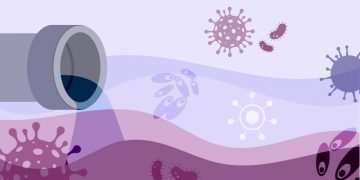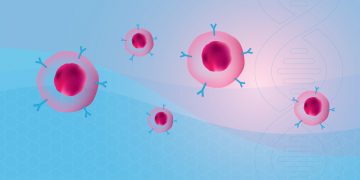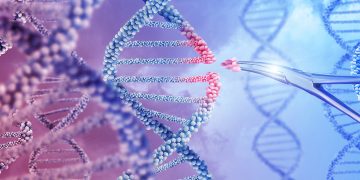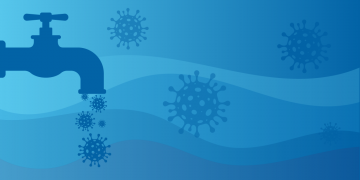
Did You Know That Beyond Sensitivity, ddPCR Provides Unrivaled Precision and Accuracy?
Methods that are highly accurate and precise provide the right answer, consistently. For digital PCR (dPCR), Poisson statistics dictate that the accuracy and precision of results are dependent on the accuracy and precision of sample partitions. This means that to get reliable dPCR results, you need to know your partition volume accurately and your partition volumes need to be consistent. See how our Droplet Digital PCR technology provides both accuracy and precision.

Poly(A) Tails: A Critical Quality Attribute in mRNA-based Therapeutics
The therapeutic potential of messenger RNA (mRNA) therapeutics has an unprecedented ability to target previously undruggable diseases. The poly(A) tail drives the therapeutic efficacy of the mRNA molecule. Using Droplet Digital PCR (ddPCR) technology to analyze poly(A) tail length and integrity yields unrivaled sensitivity, enabling developers to ensure high poly(A) tail integrity and, ultimately, functional therapeutic mRNAs.

Accurate Titering of Lentiviral Vectors is Paramount for Biotherapeutic Success
Lentiviral vectors (LVVs) have become the primary method of gene delivery for cells ex vivo in both academic and clinical applications. Currently, qPCR is the gold standard for functional titering of LVVs, but Droplet Digital PCR (ddPCR) offers an attractive alternative due to its inherent benefits, such as absolute quantification without the use of a standard curve and enhanced resistance to PCR inhibitors.

Achieving True Excellence in RNA Therapeutic Development
The realm of druggable targets has expanded significantly with the advent of mRNA therapeutics. Scientists require exceptional accuracy and confidence to adequately characterize these therapeutics and their anticipated effects. To this end, Droplet Digital PCR (ddPCR) technology has proven invaluable. With unparalleled precision and absolute quantification, Droplet Digital PCR is revolutionizing the field of mRNA therapeutic development and manufacturing.

Exploring Circulating Tumor DNA (ctDNA) as a New Oncology Clinical Trial Endpoint
Historically, five-year survival rates have been used to evaluate cancer therapeutic effectiveness in clinical trials. But time is critical for research — and for patients. Fortunately, there is a promising method for evaluating cancer therapeutic effectiveness that could potentially offer prognostic insights after just one year. Noninvasive liquid biopsy analysis, including analysis of circulating tumor DNA, is improving researchers’ ability to detect clinical responses more rapidly.

Maximizing the Impact of Wastewater-Based Epidemiology with ddPCR Technology
As SARS-CoV-2 becomes an endemic agent worldwide, communities and health agencies must figure out how to identify novel variants and track infection rates in ways that are sustainable, sensitive, and accurate. Fortunately, wastewater-based epidemiology (WBE) has proven its ability to play an important role in monitoring COVID-19 outbreaks, and Droplet Digital PCR (ddPCR) has become a cornerstone method for ongoing wastewater-based disease surveillance. In this article, we review the role of wastewater-based testing in community health before, during, and beyond the COVID-19 pandemic, and we explore why ddPCR technology is ideally suited for this application as it continues to expand and evolve.

Using ddPCR Technology to Improve Cancer Detection and Treatment Efficacy Monitoring
Cancer remains a leading cause of death worldwide. However, as cancer treatments continue to improve and diagnoses happen sooner, more and more patients are experiencing remission. To further increase survival rates and reduce unnecessary treatment, scientists and clinicians are turning to ultra-sensitive molecular analysis to inform treatment decisions and predict and detect relapse.

Precise Cell and Gene Therapy Potency Quantification
Inadequate quality control assays shouldn’t limit cell and gene therapy applications. Instead, quantifying the potency of cell and gene therapies is essential for successful therapeutics. In this article, we describe multiple leading potency assays developed using Droplet Digital PCR (ddPCR) technology, including an assay that quantifies transgene integration and expression in one step.

Modernizing Gene Editing Detection with Droplet Digital PCR
Gene editing is only useful if it’s successful. Read how scientists are leveraging the unparalleled accuracy and specificity of ddPCR technology to optimize quality control in gene editing projects, including HIV detection and CAR-T cell generation.

Trends in Wastewater-Based Epidemiology for 2022
Two years into the COVID-19 pandemic, trends point to a transition for the SARS-CoV-2 virus into an endemic agent. As major surveillance infrastructure scales back, it will be critical to maintain a cost-effective, simple, and rapid strategy for detecting and monitoring the spread of new variants. The key to such a strategy? Wastewater, where all disease agents leave their unique signature.
